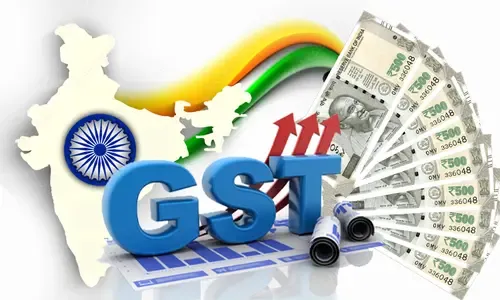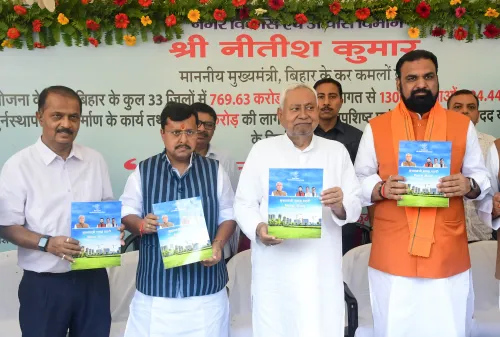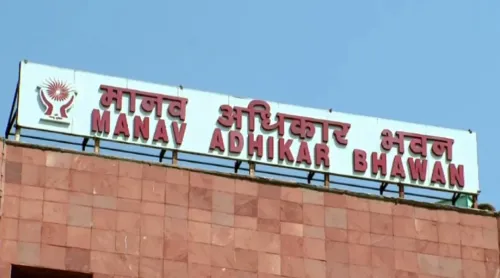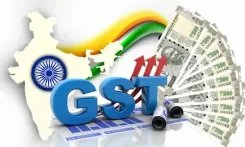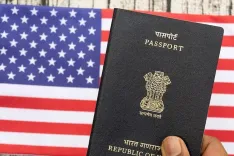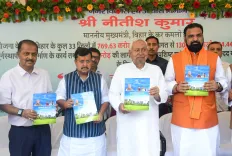Are Cong’s Tehseen Poonawalla’s GST Reforms the Key to India’s Rapid Growth?

Synopsis
Key Takeaways
- Tehseen Poonawalla welcomes GST reforms but calls for deeper changes.
- India must aim for 10-11 percent growth to become the second-largest economy.
- Excessive tax slabs and bureaucratic issues are major concerns.
- Industrialists should be viewed as allies in economic growth.
- Clear policies on emerging sectors like crypto and AI are essential.
New Delhi, Sep 22 (NationPress) Political analyst Tehseen Poonawalla expressed his support for the latest advancements in the Goods and Services Tax (GST) on Monday, labeling it a "promising yet modest initial step" toward comprehensive tax and economic reforms. He emphasized that for India to emerge as the world’s second-largest economy, it needs to achieve a growth rate of 10-11 percent.
In his remarks during the Navratri celebration, Poonawalla acknowledged the positive intent behind the announcement while voicing significant concerns regarding the systemic flaws that still exist.
"Firstly, I extend my Navratri greetings to all Indians. We appreciate the Prime Minister's statement. This marks the beginning, albeit a small one. The current GST framework still has an excessive number of tax slabs. Why is there a 40 percent GST slab? Such a high rate is unreasonable for those wishing to spend their earnings. These slabs need to be simplified as the existing structure creates unnecessary confusion," he criticized.
Poonawalla was particularly vocal about the bureaucratic management of GST.
"The central issue is that GST has morphed into a tool for coercion. Those managing GST are exploiting it to extract money from individuals and businesses. It has shifted from being a reform mechanism to a revenue collection tool," he stated.
When asked if GST 2.0 positions India as a future economic superpower, he maintained that more extensive and courageous reforms are essential.
"India is poised for progress over the next two decades. However, we can only achieve 10-11 percent growth with further reforms. A reduction in bureaucratic personnel by 50 percent is crucial," he argued.
Poonawalla also called for a shift in public perception regarding industrialists:
"We must stop viewing industrialists as adversaries. They are integral to the nation. Their investments in India are vital for job creation and national development. They should be regarded as key players in the country's future," he declared.
He raised critical questions about government policies regarding emerging sectors.
"What is India’s stance on crypto? Is it legal or illegal? If it’s legal, how can individuals be prosecuted? And if it’s illegal, how is the government taxing it? Clear guidelines on AI and Fintech are also necessary. A strategic roadmap is essential," he concluded.
"Only then can India aspire to become the world’s second-largest economy within the next 15-20 years. This transformation requires us to surpass 6-7 percent growth; we must aim for a 10-11 percent GDP growth to facilitate such a change."
The newly launched Next Gen GST reforms aim to streamline the tax structure by reducing the number of slabs and alleviating the tax burden on over 375 items.

